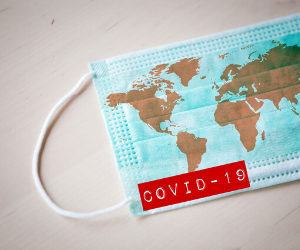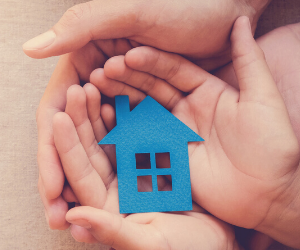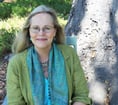A guest post by Juliet Rohde-Brown, Ph.D.

As Pema Chodron has said “fear is a natural reaction to moving closer to the truth.” We are being challenged right now. How we move through this COVID-19 fear will say much about what we are willing to face. In recent times, one need only spend three minutes on most social media venues before witnessing vitriolic language and divisiveness, whether it be political or other contexts. However, this virus has opened us to consider another way.
This pandemic targets the lungs. In some medicines of the world, ailments in this area of the body speak to an experience of overwhelming loss. A pandemic does not separate people by race, class, gender, ethnicity, religion, geography, political or theoretical orientation. It includes all people. Pan, the mythological god of wild nature, whose parents were messenger and forest dweller, spreads the sound of a calling through the music of his pipes in a uniquely trickster way. Our collective consumerism and sense of separateness from others and from nature, and ultimately from our own true nature has caused a great deal of suffering and lack of remembrance of our sacred calling as a species. At the bottom of that suffering is a grieving, a grieving that we have mostly not allowed ourselves to lean into, a grieving that is held in the body and kept at illusory bay by fear.
Fear over illness and death can drive us to imagine worst-case scenarios, to grasp at our material survival and hoard more than our share, to wipe up literal and figurative excrement (i.e., the rush for toilet paper), to forget about those most vulnerable, to search for a place for blame to land, and to panic. Alternately, fear can be a teacher. We may allow ourselves to sit with the feelings that arise, to share our innermost selves in relationship with others, to be present to frailties and perpetrations without condoning, but with compassion, and become acquainted with our perennial interconnectedness. Fear, perceived as “a natural reaction to moving closer to the truth” can open us to a listening for what is most meaningful as we face the existential given of death and the ways in which we may be in service to all while present in this body. We are recognizing where we have exploited the earth and others, where we have asked for the very mercy that we have been unwilling to give, and where we may serve a possible transformation in the witnessing of how our small sacrifices can reduce inner and outer harm individually and collectively.
In Venice, Italy, the sediment in the canals has temporarily drifted to the bottom without the rush of tourism and boats. Fish are swimming through clearer water. People who are confined to their apartments are sharing music and singing across balconies, skies are less smoggy, and we are reaching out to others across the internet with helpful and supportive information and caring, empathic words and gestures. Something is calling us to consider other ways of being with each other and with the earth.
 Some will take this time for meditative sanctuary whether individually or in group online venues. Some will share helpful information about immune support, including the importance of calming the nervous system. Neighbors can check on vulnerable neighbors, making sure they have food and emotional support. Some will explore ways to educate and play with their children at home and through online formats. Many of our faculty and students offer sound and depth-full body-mind-spirit support. At Pacifica, we are also collaborating in a spirit of care and citizenship and adjusting to the changes upon us and in our educational delivery structure and our work lives.
Some will take this time for meditative sanctuary whether individually or in group online venues. Some will share helpful information about immune support, including the importance of calming the nervous system. Neighbors can check on vulnerable neighbors, making sure they have food and emotional support. Some will explore ways to educate and play with their children at home and through online formats. Many of our faculty and students offer sound and depth-full body-mind-spirit support. At Pacifica, we are also collaborating in a spirit of care and citizenship and adjusting to the changes upon us and in our educational delivery structure and our work lives.
Let us be mindful of those who do not have internet access, who are confined in a violent/abusive or non-cohesive household or other kind of imprisonment, who do not have food or homes, or who are currently in end-of-life processes or on the front lines caring for those who are sick in overcrowded facilities. People are reaching out to help.
Fear and challenge can bring out the best in people or the worst. This is our opportunity for learning and ‘being with.’ We don’t have to wait for a pandemic to bring us here. The opportunity is always with us, every moment. Our dreams will inform us where we are on this continuum of allowing shadow and fear to “move us closer to the truth” and to our authenticity as well.
Livelihood will surely be affected by the impact this has had and will continue to have on businesses and independent contractors. We will all be touched by this virus one way or another. We will experience loss. It is inescapable. There is suffering. There is also sharing and compassion
When we recognize that we are all in this together, that we are part of an expansive living system, a certain remembrance occurs, our breath slows down, we intend for the safety and wellness of all, and we live in such a way that we are not unduly afraid of inevitable passages. My wish for all of us is that we have those moments, recognize them, and share the remembrance in ways most conducive to our temperament and capability. Let us aspire to meet each other in that place.

Juliet Rohde-Brown is the Chair of Integrative Therapy and Healing Practices specialization of the Depth Psychology program and was previously Director of Clinical Training for Pacifica’s Clinical program. She was a core faculty member as well as the Director of Practicum Training in the Doctoral Program in Clinical Psychology at Antioch University, Santa Barbara for a number of years and she served in the role of Interim Chair for two years. Her articles and reviews have been published in journals such as Psychological Perspectives, Journal of Divorce and Remarriage, and the Journal of Humanistic Psychology, among others. Her main areas of interest are in what is currently referred to as the biofield and in transpersonal inquiry.
Juliet is a past-president of Imagery International, an organization composed of health and wellness practitioners who honor the role of the imagination in healing. She is a founding board member of Tierra Sagrada: Sacred Earth Foundation, an organization that honors and advocates for indigenous ways of knowing. She has introduced role-play, trauma education, and compassion-somatic-based imagery practices to inmates at Corcoran Prison as a volunteer through Restorative Justice Resources and she has facilitated workshops and retreats at La Casa de Maria and other venues. She has been involved with meditative practices for the past two decades and she is a licensed psychologist with a small practice in Carpinteria.



